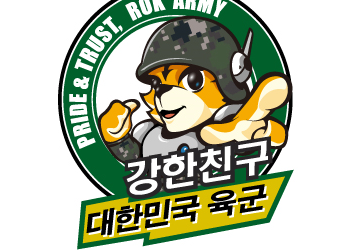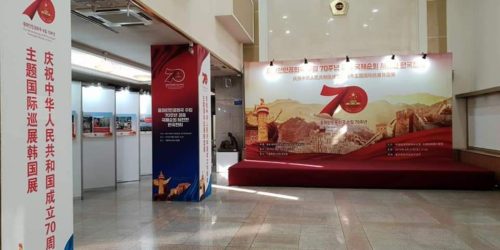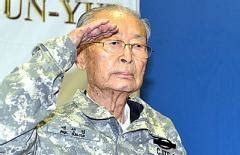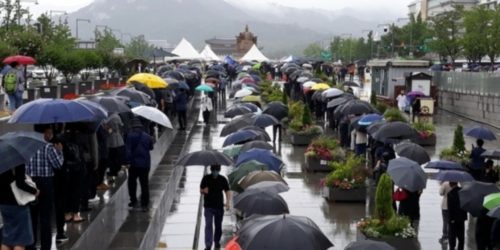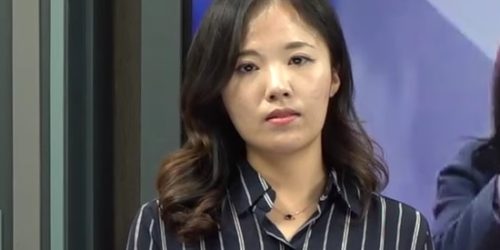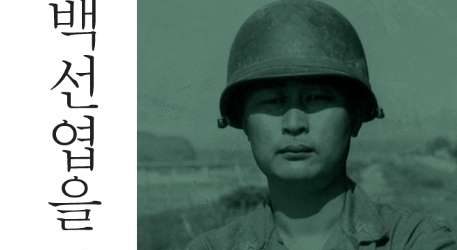Desecrating Korean War Veterans’ Graves at the National Memorial Cemeteries in South Korea
2020-6-13, Tara O
A political movement, with the backing of the ruling party, wants to desecrate the graves of fallen warriors in South Korea. The plan is to desecrate the graves by digging out the remains of military veterans who fought in the Korean War from National Memorial Cemeteries, if they were linked to Imperial Japan, such as the Imperial Manchurian Army, prior or during World War 2. Korea was a colony of Japan from 1910-1945. Since Korea was not considered an independent country, Koreans at that time found jobs and careers in a society ruled by Imperial Japan. Instead of recognizing the great sacrifices of these patriots during the Korean War, the movement holds a grudge against the fallen warriors, because they happened to live at a time when Japan occupied Korea.
Despite this absurdity, some of the independence movement commemoration organizations, such as Liberation Society (광복회) and “Kim Sung-sook memorial society” (운암김성숙선생기념사업회) insist that 1) their graves must be dug out from the National Memorial and 2) headstones with their “sins” (Japanese military background) be engraved to be displayed for public ridiculing and heckling–the type of behavior displayed in North Korea and China, especially during Mao’s Cultural Revolution.
Although they have not reached the stage of actual disinterment, on May 24, 2020, they practiced dry runs of grave desecration at the National Memorial Cemetery in Seoul. On June 12, 2020, the groups announced that they will yet again carry out the “grave desecration performance” (without actual disinterment) and displaying the prepared headstones of four generals with the carvings showing why they are to be condemned as “pro-Japanese.” at the National Memorial Cemetery in Daejeon on June 13, 2020. They call this “Destruction of the graves of the pro-Japan segment (친일파 파묘) performance.”
To make matters worse, the South Korean government, specifically the Ministry of Patriots and Veterans–the organization that is supposed to take care of the veterans–funded the groups conducting the disrespectful acts. It was discovered on June 12, 2020 that the Ministry paid ₩25,000,000 (~$21,000) for the event. The group announced that they also conducted lectures to “correct the National Memorial Cemetery history of pro-Japan and anti-Japan struggles.”
The lawmakers in the ruling Democratic Party of Korea (Deobureo Minjoo Party) are also fanning the flames. National Assemblymen Jo Seoung-lae (조성래) and Lee Sang-min (이상민) attended the “destruction of pro-Japan grave performance” on May 24, 2020.
Additionally, Democratic Party of Korea’s National Assemblymen Kim Byung-kee (김병기) and National Assemblywoman Lee Su-jin (이수진) expressed on May 25, 2020 that they need a law to destroy the graves of the veterans in the National Memorial Cemetery. Assemblywoman Lee said “in order to correct history, cemetery destruction is the righteous thing to do.” Kim said, “those who have been buried there are a problem, but there may be a problem in the case of Paik Sun-yup…if it is not nipped in the bud (if the law is not passed), it will worsen the dissension.”
Kim is referring to Korean War hero General Paik Sun-yup (백선엽), who turned 100 years old recently. On August 21, 1950, when South Korean forces faced 20,000 North Korean forces (3 times as large), General Paik urged South Korean forces to fight the desperate battle, the Battle for 55 Days (August 1 – September 24, 1950), to save the country and to earn the respect of the UN forces, and led from the front, telling his troops to shoot him if he loses nerves and turns around to retreat. If the Nakdong River Defense Line had fallen, South Korea may not exist today.
On May 26, 2020, the Ministry of Patriots and Veterans visited General Paik Sung-yup to tell him there is no room for him at the National Memorial Cemetery in Seoul, as well as the possibility that his body could be “plucked out” from the grave as “pro-Japan,” and dragged through the ugly ritual of his tombstone being belittled if his body is interred at a National Memorial Cemetery. Under presidents Lee Myeong-bak and Park Geun-hye, General Paik had a burial spot at the National Memorial Cemetery in Seoul. Although the Ministry suggested the National Memorial Cemetery in Daejeon as an alternative, if the law passes, even the cemetery in Daejeon will not be an option. General Paik’s family is distressed over the politicization of General Paik’s burial.
Kim Byung-gi wants to pass the grave demolition law quickly to make it illegal for General Paik to be buried at the National Cemetery, anticipating dissension from the public. The 21st Session of the National Assembly began on May 30, 2020. Given that Kim Byung-gi’s party and like-minded parties have enough votes to pass almost any bill introduced, it is worrisome that such a despicable law could pass the legislature.
On May 27, 2020, Korean Veterans Association (KVA) (대한민국재향군인회) in South Korea said it is an irresponsible act to agitate the public. KVA stated that it is not “correcting history,” but “reversing history,” and demanded the politicians stop such an act of dividing the society.
Whether the law is passed or not, however, it will be a major controversy, not only within Korea, but probably abroad. During the Korean War, 16 countries also sent combat forces to fight on the side of South Korea, all under the UN Command. To see their fellow brethren go through such humiliation by their own government will break the hearts of Korean Veterans everywhere and bring shame upon the Republic of Korea.

